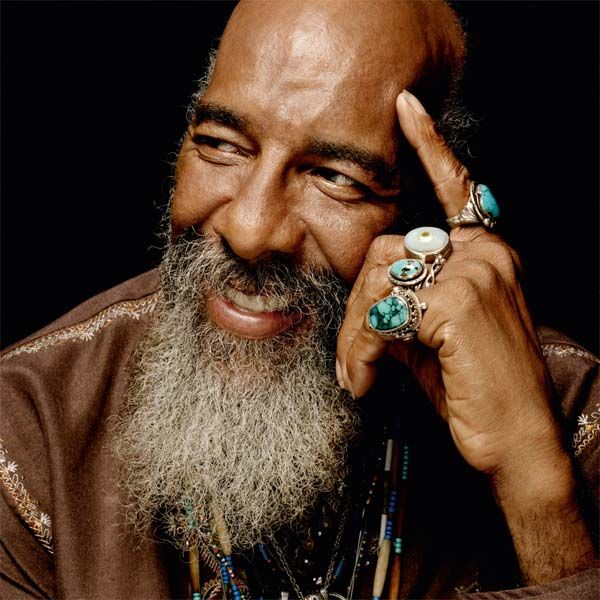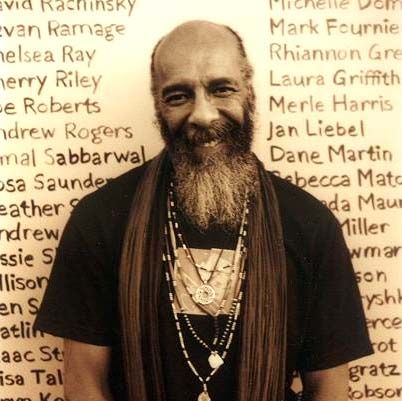Jan 21, 1941-April 22, 2013
We have all heard by now of the death of Richie Havens.
I’d like to spend a little time celebrating his life. Not just as the iconic opening performer at Woodstock, or hall of fame blues folk artist.
He was a man with a message, about the environment.
Havens devoted his energies to educating young people about ecological issues. In the mid-1970s, he co-founded the Northwind Undersea Institute, an oceanographic children’s museum on City Island in the Bronx. That, in turn, led to the creation of The Natural Guard, an organization Richie describes as “a way of helping kids learn that they can have a hands-on role in affecting the environment. Children study the land, water, and air in their own communities and see how they can make positive changes from something as simple as planting a garden in an abandoned lot.
Northwind sadly, is currently closed.
North Wind was co-founded in 1976 by Michael Sandlofer and performer, Richie Havens, to educate young people about the plight of the environment.
The North Wind Museum is a hands-on Learning Center featuring The Undersea World of the Bronx exhibit; a 100-year-old Tugboat; Towering Whale Bones and Life-Size Models of Whales; the North Wind Rescuarium, where injured or ill marine animals are rehabilitated; and much much more relating to marine life and preservation. The Institute has a history of rescuing marine animals, and has developed special techniques and gear to accomplish this. The Institute also maintains the Equine Heritage Conservancy to promote the important interrelationships of humans and animals.
In a piece in the LA times in 1990, Singer’s ‘Natural Guard’ Plants Seeds for Environmental Lessons, he said:
“You give kids something to do, and there is no gang, there (are) no street-corner drugs,” the 49-year-old Havens said at the Mt. Baldy Ranger District office of the Angeles Forest. “Under the guise of the environment, geography can be taught, sciences and humanities can be taught, and the need to get rid of poverty, homeless and drugs can be taught.” “I don’t think that it’s a far-fetched idea,”
…Making a connection with gang members or gang wanna-bes is not as difficult as it might seem, said Havens, who himself escaped the 1950s gang life of Brooklyn’s Bedford-Stuyvesant. Nor, he said, is it hard to make a connection between the street-corner environment of vacant lots and the majesty of 10,000-foot mountain peaks an hour from downtown Los Angeles.
“The idea of the Natural Guard is to start in your own community,” he said. The goal is “to bring up a generation with real information about the environment, for the first time in history.”
Looking back, into the influences in his life that caused him to champion the environmentalism, along with social justice and civil rights we find some clues.
Born in Brooklyn NY, to working class parents Richard and Mildred, he was the oldest of nine children. His mom’s family was from the British Caribbean. His father’s family had long time roots on NY’s Long Island dating back into the early 1800’s, and an historical connection to an area blending black Americans with Native Americans, near Shinnecock.
He, like many kids from that post-war era NYC, hung out and sang do-ops on street corners. But like many of us at the time he hopped a train to Manhattan, drawn to the lure of the Village.
At the age of 20, Richie left Brooklyn to seek out the artistic stimulation of Greenwich Village. “I saw the Village as a place to escape to in order to express yourself,” he recalls. “I had first gone there during the beatnik days of the 1950s to perform poetry, then I drew portraits for 2 years and stayed up all night listening to folk music in the clubs. It took a while before I thought of picking up a guitar.”
He recounts those days in his biography “They Can’t Hide Us Anymore“, written by Steve Davidowitz.
I remember him well from that time, playing on the streets, and in the folk cafes and bars. The beatnik era was morphing into what would become a civil rights, anti-war and hippie generation. I have fond memories of playing Mixed Bag, his debut album over and over till the record wore out.
Then came Woodstock in 1969, and his cry of “Freedom” became an anthem for a generation.
Over the decades while performing and recording, Havens preserved a legacy of struggle, like his “Will the Circle Be Unbroken” from Soundtrack for a Revolution.
Along with the civil rights movement, he also championed Native American causes and concerns.
In 1998 he announced the first annual Native American Music Awards
In 2001 he headlined a benefit for imprisoned Ndn activist Leonard Peltier.
The Legendary Richie Havens will appear in Concert on Saturday Night
November 24th at 8 PM at the historic Provincetown Town Hall on Cape Cod.
The Mashpee Wampanoag Drum Group, The Wakeby Lake Singers will open the
evening with Honoring Songs and Prayers for Leonard Peltier.
His identification with both black and native roots, his deep connection to the environment, his ideological shaping through anti-war struggles resonated in the man and his music.
I got to hear him live a few years ago, performing up here in the Hudson Valeey where he played with now deceased guitarist Bill Perry.
He also sang to help get Barack Obama elected.
Was looking forward to hearing him at an upstate folk festival but in 2012 I read an announcement. An entry on his facebook page announced his retirement from touring.
Dear Friends
As many of you already know, Richie had kidney surgery a year and a half ago. Though he did return to the stage after that for numerous concerts, he truly never regained the physical strength required to put on the kind of shows for which he’s always been known, and coupled with ongoing health concerns, the traveling and performing have simply become too hard on him for him to be able to continue. After 45 years of non-stop touring, this is a sad and unexpected reality.
From Woodstock to The Isle of Wight to Glastonbury to the Fillmore Auditorium to Royal Albert Hall to Carnegie Hall, Richie has played the most legendary music festivals that ever were, and most of the world’s greatest concert venues. But even when performing in a Greenwich Village coffeehouse or a small club or regional theater, he’s always been eternally grateful that people in any number turned up each time to hear him sing. More than anything, he feels incredibly blessed to have met so many of you along the way.
We were blessed to have heard him, or known him.
He has joined the ancestors, and we can honor him by carrying his message to protect the earth.
Fly high Richie.
Cross-posted from Black Kos


7 comments